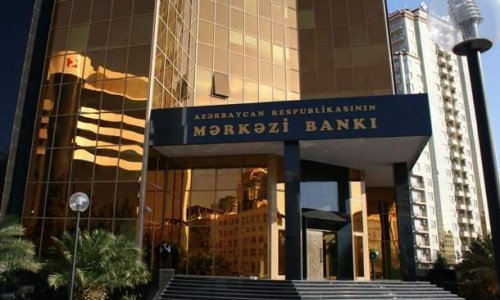Azerbaijan's central bank said on Tuesday its policies had successfully calmed the Azeri foreign exchange market and that investors and businesses are gradually adapting to the manat's floating exchange rate regime.
The manat was freed to float in mid-December, triggering a plunge of 35 percent against the dollar, after the central bank burned through more than half its foreign reserves to defend the currency as prices for the country's main export oil plunged.
"Research carried out this year has shown that a frenzy on the foreign exchange market in Azerbaijan has been averted and economic players are adapting step-by-step to the new regime," the central bank told Reuters in a written answer to questions.
The central bank has since sought to prop up the manat by raising its key interest rate and imposing some limits on foreign currency outflows, among other measures.
Azerbaijan is the third-biggest ex-Soviet oil producer, and energy accounts for 75 percent of government revenues.
The December decision followed a one-off devaluation in February 2015 when the central bank had allowed the manat to fall 33.5 percent against the dollar following a sharp fall in oil from record highs hit in mid-2014. Crude exporters Russia and Kazakhstan also changed their currency policies.
Azerbaijan's SOFAZ sovereign wealth fund has been selling forex to support the manat along with the central bank's own interventions but this week sold only $11.9 million out of the $150 million it had offered.
Asked why demand for SOFAZ's offer had been so low, the central bank said that the changes in currency policy in 2015 are having "a stabilising effect on the balance of payments".
The central bank also said that trust in the manat has been positively affected by the issuance of treasury bonds and an increase in manat deposit rates.
The bank said its presence and volumes on the domestic forex market would depend on the market situation.
Last month, parliament approved amendments to the 2016 budget that assumed an average oil price of $25 per barrel rather than the $50 it was originally based on, part of a global squeeze on oil producers caused by tumbling prices.
(Reuters)
www.ann.az
Follow us !











